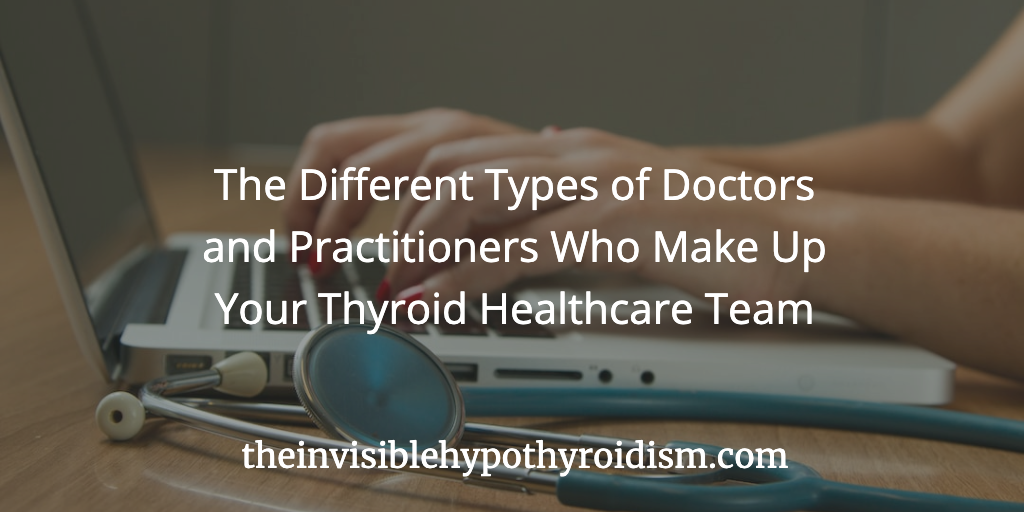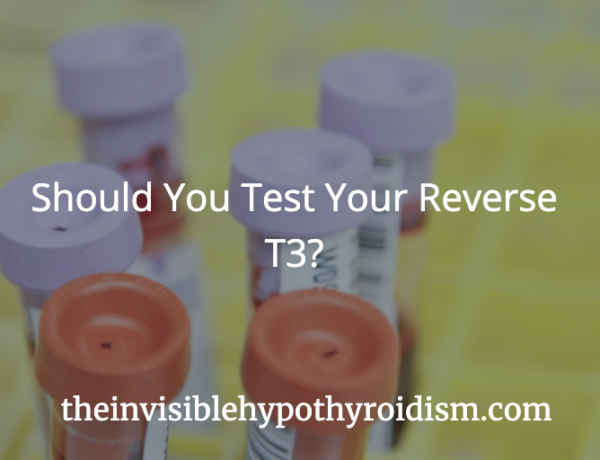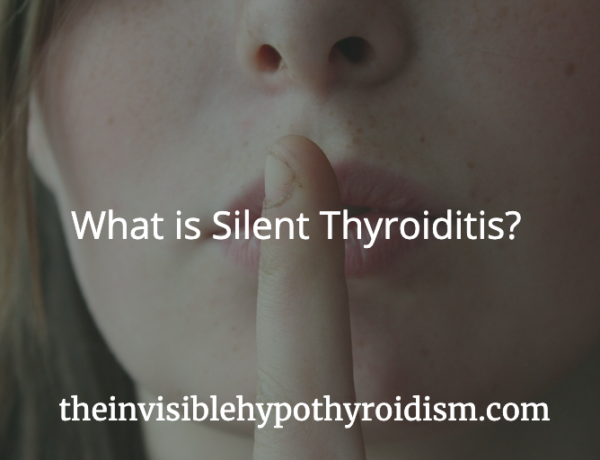Originally published on 24th October 2017 Last updated on 9th February 2024
I often see thyroid patients asking “What type of doctor should I see?”
Confused about the options between a regular GP, endocrinologist, functional doctor, naturopath and others, it can feel overwhelming!
What many of us have found, is that different types of practitioners can offer different kinds of support and that different thyroid patients have different results with different types of practitioners, too.
Therefore, instead of focusing on one doctor, what if we looked at our health condition as requiring a team of practitioners instead?
First of all, let’s look at the difference between:
Conventional Medicine VS Functional Medicine
There are generally two approaches to medicine, conventional / mainstream medicine and functional medicine (also known as: lifestyle medicine, integrative, progressive, alternative medicine and holistic medicine).
Conventional / mainstream medicine is what many of us are most familiar with. It follows the conventional ways a doctor treats a patient. For example, someone presents with a symptom or problem and they’re given a drug to help with that.
Functional medicine looks at getting to the root cause of the symptoms, and fixing that, before going straight to treating the symptom/s with drugs.
For example, migraines may be treated with a pain killer in mainstream medicine, while functional medicine will look at unearthing the cause of the migraines (maybe a food allergy or hormonal imbalance) and treating that first.
Endocrinologists and GPs generally fall into conventional medicine, as well as some private doctors. However, there are also private GPs who combine conventional and integrative medicine practises, too.
Functional medicine doctors, naturopathic doctors etc. fall in to functional medicine practises.
Whereas Conventional medicine looks at each symptom and health condition as a separate issue to treat, functional medicine is holistic and looks at the whole body, considering how one issue can have a knock-on effect and cause other things to go wrong, too.
Whilst also considering drugs, functional medicine places importance on lifestyle factors such as diet – what we eat and drink – stress levels, exercise and much more.
For some people, conventional medicine works just fine for them and they return to good health on thyroid medication alone for their hypothyroidism, whereas for others, they never quite feel right again, post-hypothyroidism diagnosis and conventional doctors prescribe multiple medicines for multiple symptoms that we are told, are separate issues.
A lot of thyroid patients therefore feel that a functional medicine approach is better suited to them because it not only deals with their thyroid condition, but also looks at other parts of the endocrine system which may have also gone awry, such as those pesky adrenal glands and sex hormones, and it works to bring them back into balance, also addressing any other issues from the root, avoiding the need for a growing list of prescription medications.
Functional practitioners also consider whether your hypothyroidism is autoimmune (it is for around 90% of us) as being very important and crucial in your recovery.
Due to cost restraints, conventional doctors are rarely allowed to use innovative tests and treatments and often can’t spend enough time to help identify, run tests or treat complex autoimmune diseases and hormonal imbalances. So, when you need more personalised thyroid treatment, conventional medicine can feel like it comes up short.
What is a Healthcare ‘Team’?
You may find that seeing just the one type of doctor or practitioner works for you, however, combining the expertise of more than one can also be useful. This is known as having a ‘healthcare team’ look after your care.
Your healthcare team may be made up of:
- A GP (general practitioner) / PCP (primary care practitioner) – either on the NHS, private or covered by insurance
- An endocrinologist
- A Functional Medicine Doctor / Functional Medicine Practitioner
- A Naturopathic Doctor / Naturopathic Practitioner
- A Dietician / Nutritionist
- A gynaecologist
- An ENT Specialist (Ears, Nose and Throat)
- A Mental Health Therapist
- A Masseuse
We’ll look at each of these in more detail, including why they may be a useful part of your team.
GP or PCP
GP stands for ‘general practitioner’, PCP stands for ‘primary care provider’. They’re not specialists in a particular area or field and as such, tend to know a standard amount about all aspects of the body, rather than being focused on one area or system alone.
GP’s are generally those who diagnose hypothyroidism in most cases and many thyroid patients only see their GP for thyroid medication prescriptions, dosage adjustments and any on-going issues. However, they can refer you to a thyroid specialist (an endocrinologist) if you have ongoing complaints of symptoms and conventional T4-only medication (e.g. Levothyroxine or Synthroid) not working as well as you’d hoped.
Some thyroid patients do just fine on standard thyroid medication and simple dosage adjustments their GP can make, but for those who are still not feeling optimised for their condition, a referral to an endocrinologist can be made and may be useful. GP’s tend to follow a conventional medicine approach and in the UK especially, can only prescribe T4-only medication.
Most, if not all of us, will have a GP make up part of our healthcare team by default.
Endocrinologist
An endocrinologist (often called an endo for short) specialises in the endocrine system, a system that includes the thyroid gland as well as the hypothalamus, pituitary, parathyroid, adrenal glands, pineal gland, and the reproductive organs (ovaries and testes). The pancreas is also a part of this system; it has a role in hormone production as well as in digestion.
A referral to an endocrinologist can be made by your GP. In the UK, you can see an endocrinologist on the NHS.
Endocrinologists are somewhat of a controversial topic among thyroid patients and others who live with adrenal and reproductive hormone issues, too. Whereas some find a good level of success with an endocrinologist, others feel that they follow mainstream medicine “too closely” and thus, do not offer much more than their GP.
Often still favouring the TSH test, although able to run other thyroid tests such as Free T4 and Free T3, endocrinologists may offer a bit more of a detailed insight in to your thyroid condition and management, including a few more tests but often stand by stiff ranges and place the most importance on TSH levels. This can be of limited help. However, endocrinologists can differ hugely in how open they are to more progressive ideas, and a private endocrinologist is more likely to be able to offer full thyroid testing and medication options.
Depending on where you are in the world, endocrinologists can offer more than T4-only medication but often only prefer to prescribe conventional T4 synthetics. This means that getting them to prescribe you T3 and NDT medications, which help many thyroid patients get their good quality of life back, may be difficult, but isn’t impossible. It’s definitely easier in the US compared to the UK and European countries for example.
Private GP or Private Doctor
Private doctors or private GPs in the UK mostly fall into conventional medicine practises but often offer more than GPs on the NHS.
For example, the NHS only offer the thyroid medication Levothyroxine for the most part, but private doctors or GPs can offer more types of thyroid medications. They are often keen to do more in depth and comprehensive testing (such as the full thyroid panel) too.
I see a private GP doctor who prescribes me my NDT medication, and he combines both mainstream and integrative medical practises and information, and sees himself as a holistic / integrative doctor.
A private doctor forms part of many thyroid patients’ healthcare team when it comes to having something other than Levothyroxine prescribed.
Functional Medicine Doctor or Functional Medicine Practitioner
Functional medicine doctors and functional medicine practitioners offer more comprehensive testing than mainstream doctors, look at changing other aspects of your life, including diet, routines for sleeping and stress coping, and prefer to treat by looking at the whole body as a system that needs to work in harmony together, rather than focusing on the thyroid gland alone.
Not all functional practitioners have medical degrees, so whilst some are Functional Medicine Doctors, others are simply Functional Medicine Practitioners.
Many thyroid patients turn to functional doctors or practitioners after years of feeling let down by conventional medicine, and there’s loads of info online singing their praises. With an approach that looks at the whole body as opposed to just the thyroid and supporting good overall health, it’s a more personalised approach to your specific situation.
In my personal experience, a functional medicine practitioner (FMP) was the way to go to address my health as a whole. Read about how they helped me in my general update blogs. I found that an FMP alongside the use of a private GP gave me the most benefits.
Many will utilise a functional medicine doctor / practitioner alongside a mainstream doctor, as it can be useful to implement knowledge and practises from both.
In my personal experience, a functional doctor or medicine practitioner was the way to go to address my health as a whole. Read about how they helped me in my general update blogs.
Naturopath or Naturopathic Doctor
A naturopath applies natural therapies to health conditions, often to compliment what you’re receiving from a conventional or functional doctor. It includes natural healing practices (dietary changes, lifestyle changes, acupuncture and herbal medicine for example).
They provide personalised care to each patient, and, similarly to a functional medicine practitioner, see the body as a holistic unity of body, mind, and spirit, aiming to address the body as one.
They usually practice in a freelance environment, but have the option to work in hospitals, spas and healthcare, too. Not all naturopaths have medical degrees, so whilst some are Naturopathic Doctors, others are simply Naturopaths. Only those with medical degrees can write prescriptions such as those for thyroid medications.
Like functional medicine doctors and practitioners, you would usually pay privately to see a naturopath and costs can range to suit various budgets.
Dietitian
Registered Dietitians (RDs) are the only qualified health professionals that assess, diagnose and treat dietary and nutritional problems at an individual and wider public health level. A referral to a dietician can be made via your GP and on the NHS, if your GP has a reason to feel you need to see one.
I.e. if you also have food allergies or intolerances, or require guidance on healthy living and diet.
You can also often choose to pay privately to see this type of practitioner. They can offer support on dietary changes to help improve overall health and wellbeing, as well as identify any particular foods which are contributing to your symptoms or ongoing health complaints.
Dietitians are the only nutrition professionals to be regulated by law and are in fact governed by an ethical code to ensure that they always work to the highest standard. Their title is protected by law.
Nutritionist
Nutritionists are qualified to provide information about food and healthy eating. Technically, anyone can call themselves a nutritionist, (but only those registered with the UK Voluntary Register of Nutritionists can call themselves a Registered Nutritionist). Nutritionists are qualified to provide information about food and healthy eating, but not about special diets for medical conditions (such as thyroid disease). So this may have limited benefits.
Nutritional Therapists
We often see online ‘thyroid health coaches’ refer to themselves as ‘nutritional therapists’. Technically, anyone can call themselves a nutritional therapist, and they are not regulated. So if you wish to work with one, checking out their reviews and doing a deep-dive in to exactly what they’re offering is wise.
Nutritional therapists often recommend diet and lifestyle changes in order to alleviate health complaints and symptoms, based on functional and holistic medicine practises (explained above).
Their recommendations may include guidance on specific elimination diets, detoxification, supplements and toxins.
Health Coach
Search the words ‘health coach’ or ‘thyroid health coach’ on social media and you’ll find thousands of people with this job title. Essentially offering the same as nutritional therapists, these are also not regulated, so do your research and approach with caution. Their focus is usually on functional and holistic medicine practises, but they are not medically qualified.
Offering ideas on exercise routines, interpreting your blood test results, guiding on diet, sleep, supplements and stress management practises, they may be helpful, but can also become very expensive.
They often run online events, workshops, courses and 1-to-1 coaching sessions.
Obstetricians and Gynaecologists
Obstetricians and gynaecologists can also help to manage thyroid conditions. These specialists are generally concerned with the care of a pregnant woman, her unborn child and the management of diseases specific to women, such as thyroid issues, which can come to light during pregnancy, be triggered by pregnancy or get better or worse during pregnancy.
Many practitioners in this field have a special interest in one particular area, such as high-risk obstetrics, fertility care or minimal access surgery.
In gynaecology, patients range from those who have chronic disorders which are not life threatening but interfere significantly with quality of life, such as thyroid disease, to those where an acute emergency presentation is the first indication of a gynaecological problem.
Gynaecology is concerned with the well-being and health of the female reproductive organs and the ability to reproduce, which involves a lot of the endocrine system I mentioned above. When one part of this system goes awry, so can others, so sex hormone imbalances and adrenal issues.
You will usually be referred to an obstetrician when pregnant or a gynaecologist for reproductive system related symptoms or issues – both are included on the NHS in the UK.
Many thyroid patients find that they get more comprehensive thyroid testing done compared to an endocrinologist or GP, from an obstetrician or gynaecologist. If you fall pregnant as a thyroid patient, you may be referred to see an obstetrician or gynaecologist to help manage you through pregnancy.
Read about my experiences of being managed by an obstetrician during my pregnancy here.
ENT Specialists
Ears, Nose and Throat specialists can be involved with thyroid conditions due to the location of the gland being in the neck.
Thyroid patients who are referred to an ENT (which can be done on the NHS) are often done so due to complications of their thyroid disease such as nodules, inflammation or enlargement of the thyroid gland.
They recognise autoimmune hypothyroidism (Hashimoto’s) and how it can affect the thyroid gland in terms of inflammation.
ENT specialists may conduct further testing that an endocrinologist and GP cannot, such as:
- More in-depth blood tests of thyroid function
- An ultrasound examination of your neck and thyroid
- A radioactive thyroid scan
- A fine needle aspiration biopsy
They will pick up on any abnormalities such as thyroid cancer and create a treatment plan going forward for any issues they may diagnose or find.
Therapist
A therapist can be useful if you experience mental health effects such as depression or anxiety from your thyroid condition. These mental health conditions can be directly caused by a thyroid condition, as well as made worse by or simply triggered by.
Receiving your thyroid condition diagnosis may be a lot to take in and processing this with the support of a mental health professional can be useful.
See Also: Grieving For Who You Were Before You Had Hypothyroidism
Counselling, cognitive behavioural therapy, as well as other options are available when it comes to talking about the impacts thyroid disease has perhaps had on different areas of your life.
Many people find that having a mental health professional in their healthcare team is of huge help and support when navigating life with health conditions and chronic illness.
Masseuse
Since thyroid disease can bring with it symptoms such as muscle aches and pains, cramps and fatigue, opting for regular massages, if budget allows, can be beneficial. Weekly or monthly seem to be most common and can help to relieve thyroid symptoms impacting your day to day, as well as promote lowered stress levels and better sleep, which can impact how we feel day to day.
I’ve heard from thyroid patients who also experience conditions such as ME or fibromyalgia, informing me that this member of their healthcare team has been life changing to the management of their condition and symptoms.
So, who is the best practitioner to treat your thyroid condition?
I wish I could tell you! I hope this article has at least educated you on your options and encouraged you to be your own advocate, helping you figure out which direction to go to find the best combination of practitioners for you. I hope it helps you to improve your overall health and wellbeing. At the end of the day, all thyroid patients deserve to feel good and live a full life.
See also: How to Find a Good Medical Professional for Your Thyroid Condition
Who makes up your healthcare team? Let me know in the comments.

The book Be Your Own Thyroid Advocate: When You’re Sick and Tired of Being Sick and Tired, which walks you through how to understand your hypothyroidism and how to get the treatment you need.
You can click on the hyperlinks in the above post to learn more and see references to information given.
References:
[1] https://www.ncbi.nlm.nih.gov/pubmed/3066320







